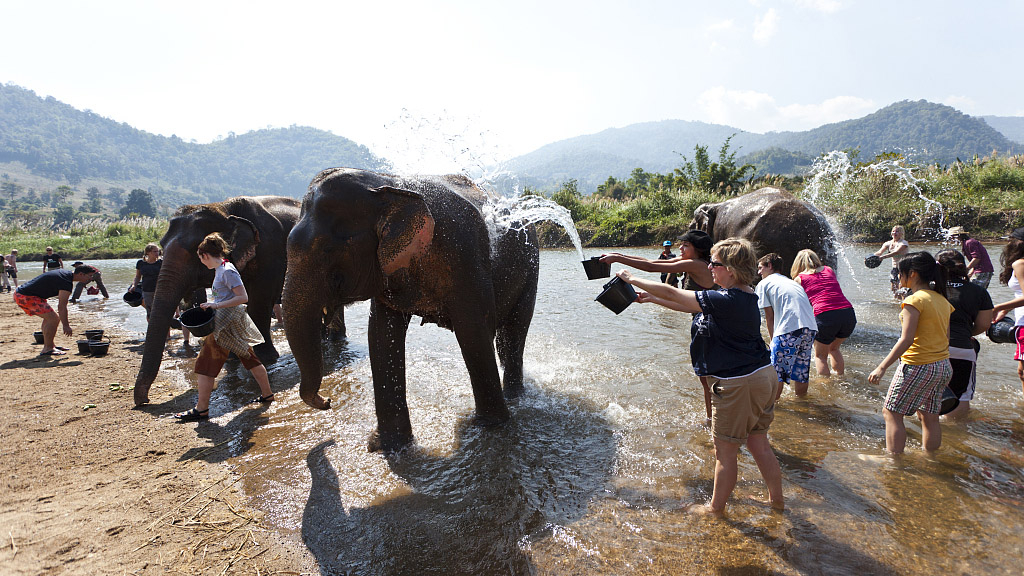Separated from their mothers, jabbed with metal hooks and sometimes deprived of food, many elephants in Thailand are tamed by force before being sold to lucrative tourism sites.
Balanced precariously on her hind legs, two-year-old Ploy holds a ball in her trunk and flings it towards a hoop, one of the many tricks she is learning in Ban Ta Klang, a traditional training village in the east.
Here young elephants are "broken" to interact with the tens of millions of tourists who visit Thailand every year, many eager to capture social media-worthy encounters of the kingdom's national animal playing sports, dancing and even painting.
Villagers in Ban Ta Klang who have been working with the large, gentle animals for generations say taming is necessary for safety reasons and that the force used is not excessive. But animal welfare advocates argue the taming technique, where baby elephants are removed from the care of fiercely devoted mothers at the age of two, is cruel and outdated.

Tourists are seen to help bathing elephants in Thailand.
Tourists are seen to help bathing elephants in Thailand.
Elephants were phased out of the logging industry about 30 years ago, leaving their mahouts unemployed. So, these workers turned to Thailand's flourishing tourism industry, with its burgeoning business of amusement parks offering elephant rides and performances. A tamed elephant can now fetch up to 80,000 U.S. dollars, a colossal investment that then requires grueling hours of work and increasingly bizarre stunts to be mastered.
As tourists become more aware of the potential cruelty of such activities, a growing number of places have opted to use the term "sanctuary" or "refuge".
Many do not permit rides or animal performances. Instead tourists are encouraged to feed, groom and care for elephants, gaining an unforgettable experience with one of nature's most majestic creatures. But charities warn that even seemingly benign activities such bathing them could still be problematic because elephants can become stressed.
(Editor: Xing Fangyu)
(If you want to contribute and have specific expertise, please contact us at nature@cgtn.com)
Source(s): AFP